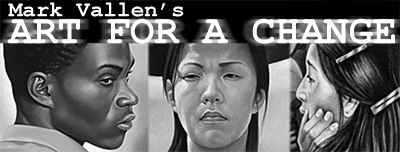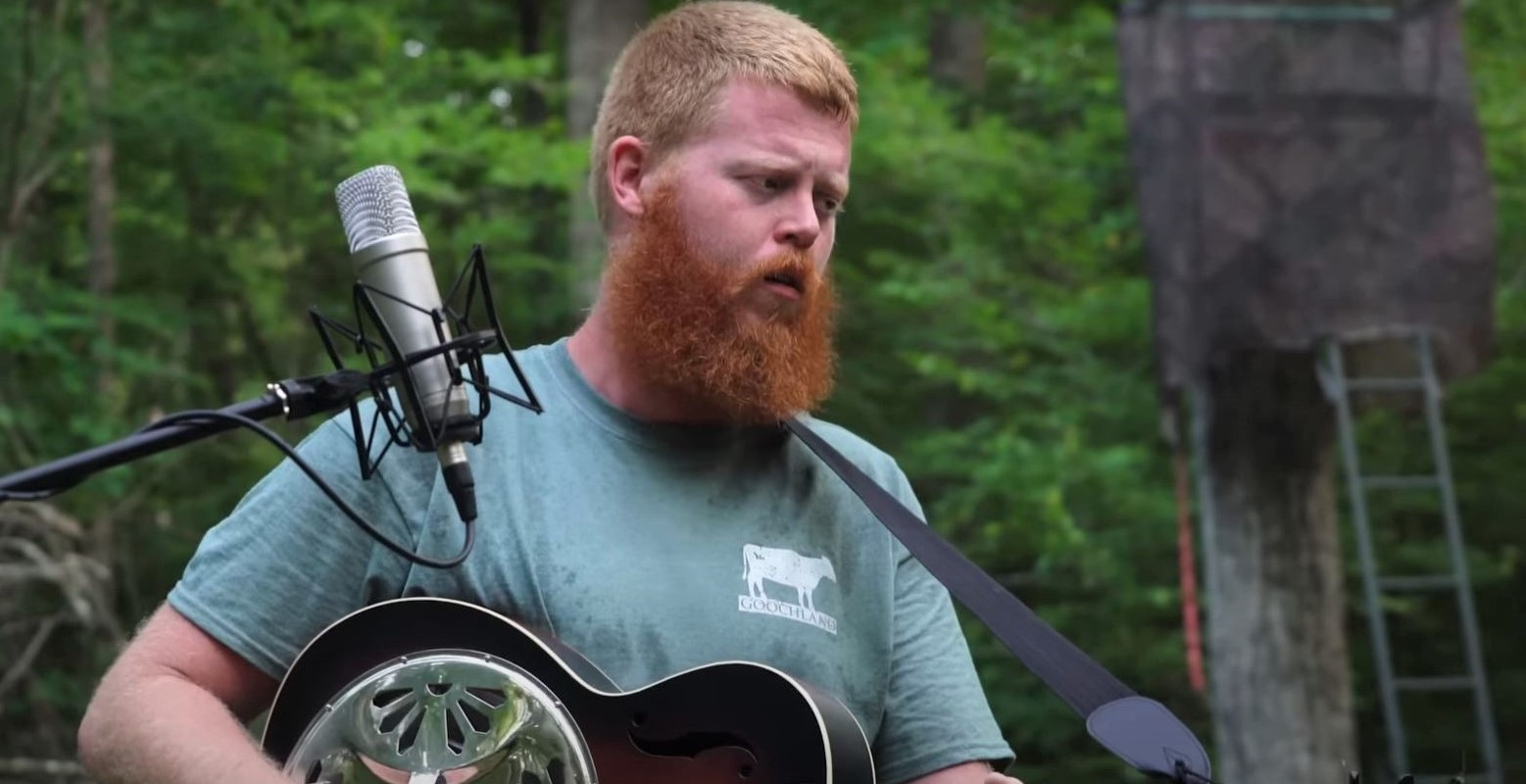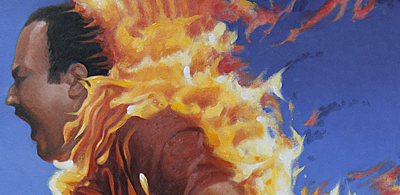Oliver Anthony and the Rich Men North Of Richmond
This commentary is a somewhat unusual take on the timelessness of American folk music, with its focus being a young Virginian named Oliver Anthony, a former factory worker who became a farmer that lives off grid, but now hopes to make a living as a country folk singer. On Aug. 8, 2023, Anthony released his song Rich Men North Of Richmond, the title being a beautiful metaphor for Washington DC.
On Aug. 9, 2023 my wife approached me with cell phone in hand and asked me “have you seen this?” On the phone she displayed a video of Anthony singing the song. I was awestruck and have since been closely following the troubadour’s story.
In three days Anthony went from absolute obscurity to holding the #1 and #2 spots on the US iTunes “Top Songs” list (Rich Men North Of Richmond and Aint Gotta Dollar). Not only that, but on Aug. 13, 2023, in the top 100 of the same iTunes list, Anthony held eighteen spots. This is simply unprecedented. At the time of publishing this article, the video for Rich Men North Of Richmond has received well over 10 million views on social media platforms. To call this a musical phenomenon is an understatement. It’s much more than that.
Viewing the comments sections of the many websites carrying the story of Oliver Anthony and his Rich Men North Of Richmond song, I saw that people were posting overwhelming praise for Anthony’s composition, calling it “much needed,” “the honest to God truth,” and “exactly what the country needed.” But the most striking comment I found posted over and over—from men in particular, was that the song brought tears to their eyes and made them cry.
I’ll admit it, that was my reaction as well. We weep because our country is falling apart… something just ain’t right with those who run America.
As a visual artist, let me give some insight into my journey as an amateur musicologist before further commenting on Anthony and his meteoric rise to fame. I was 9-years-old in 1963 when American folk music was all the rage. My neighbor was a school teacher, and she possessed a huge collection of the day’s contemporary folk music albums. She let me borrow records by the likes of The Kingston Trio, Peter, Paul and Mary, The Brothers Four, The Rooftop Singers, The New Christy Minstrels, and a young fellow named Bob Dylan.
In the teacher’s collection I found Woody Guthrie, and discovered that in 1940 he wrote the song This Land Is Your Land, one of the greatest American folk ballads ever written. I got wind of Lead Belly, the Black American folk singer who penned the folk standard Goodnight Irene, but also gave us The Bourgeois Blues, a tune that remains a favorite of mine.
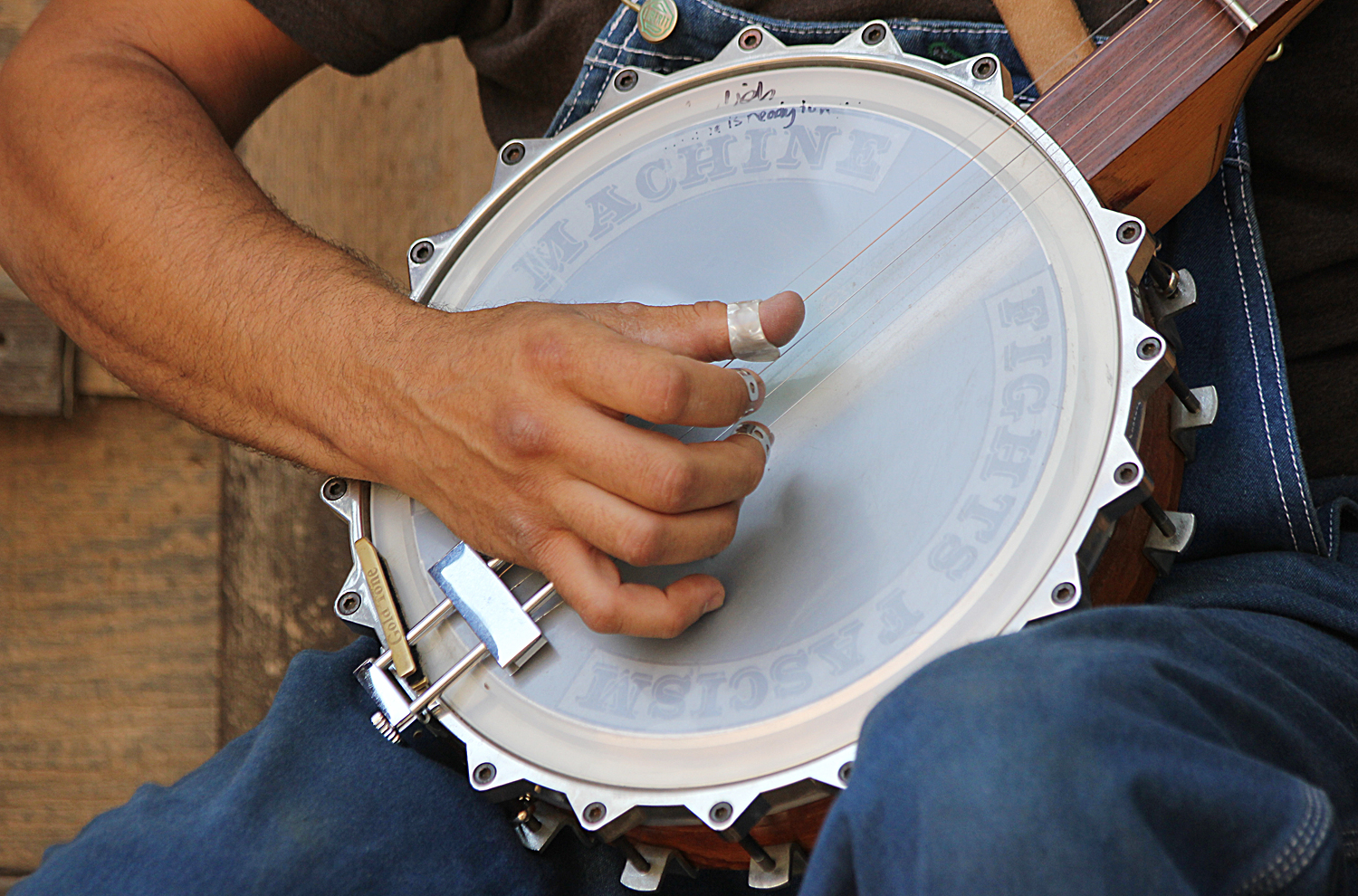
That school teacher mentor took me to the Greek Theatre in 1963 to see Harry Belafonte, at the time known as a folk singer and the performer who introduced Americans to Caribbean Calypso music. That same year I discovered the American folk singer Phil Ochs when I heard his ode to America titled The Power and The Glory, likely one of the most patriotic songs you’ll ever hear.
Long ago I attended an impromptu open-air concert by the famous American folk singer Pete Seeger. While it was held somewhere in the rolling hills of Southern California, I don’t remember the locale or date (likely 1969 or 1970)—but I do recall the enthusiasm of those folkies and hippies gathered off road in the California sagebrush. Seeger was famous for his singalongs; he always encouraged his audience to sing along with him. It was no less so that day.
Due to my early interest in folk I discovered bluegrass, blues, and country western music, genres that not only influenced folk but helped define the national identity of the US. I could write a book on the American folk music revival of the late 1950s and ’60s and how it impacted my generation.
The folk I listened to was pure Americana. The acoustic guitar and banjo were central to the genre, with the double bass, fiddle, and perhaps a mandolin or harmonica filling out the sound. The paramount instrument in folk music was always the human voice—whether unpolished or refined. Folk music could also be topical, addressing the issues of the day. The music was filled with humanistic optimism and authenticity.

Leaping to the late 20th century, American folk music was a faint memory. It may seem a stretch for me to say so, but I always viewed the first wave of 1977 punk rock as an equivalent to folk music. Despite its nihilistic aesthetics, one of punk’s positive attributes was it topicality. It generally decried the same social ills noted by folk—it just attacked those maladies with furious vitriol.
Punks were angry apocalyptic troubadours, I should know, I was one of them. The early punk bands could barely play their instruments, but frenetic 3 chord guitar playing was all that was necessary; punk musicians improved with time and practice. Punk worked to sweep away artificiality and the corporate music industry… at least it did in its enfant terrible phase.
Punks practiced a “do it yourself” ethic. Locked out of the mainstream, they created their own press in the form of underground papers and fan zines; they self-published records and started small record labels. They held concerts in run-down rented venues, and promoted the gigs with provocative Xeroxed flyers. The snarling punk attitude was maintained because of its independence from the mainstream. Sadly punk was eventually hijacked by the corporate dream machine, its remnants went deep underground, and all that remains today are sell-outs like Green Day.
We went from the explosive 3 chords of punk’s electric guitars, to the 4 chords of Oliver Anthony’s acoustic guitar.
Oliver Anthony stood alone on his plot of farmland with his guitar and a cell phone camera, screaming about a world turned-upside down with the hope that someone was listening. It was all very punk. At the same time, Anthony is undeniably rooted in the American traditions of bluegrass, blues, and country music—long considered genuine voices of the “unsophisticated” American blue-collar working class.
While Anthony has a strong voice and delivery, and he can produce poetic and emotive lines while showing competency with his guitar, he’s not a musician’s musician. He’s rough around the edges—hence my comparison to punk. But while there’s room for improvement, it’s precisely that rough-hewn coarseness Anthony’s fans delight in. Why?
Because everything that comes out of today’s corporate music industry is artificial, from the “auto-tune” alterations to a singer’s voice, to the infantile lyrics detached from everyday life. Infinite numbers of Americans are thirsting for culture that reflects their lives, and speaks to them with authenticity and truthfulness—they want a sense of belonging, and they are finding this in the songs of Oliver Anthony.
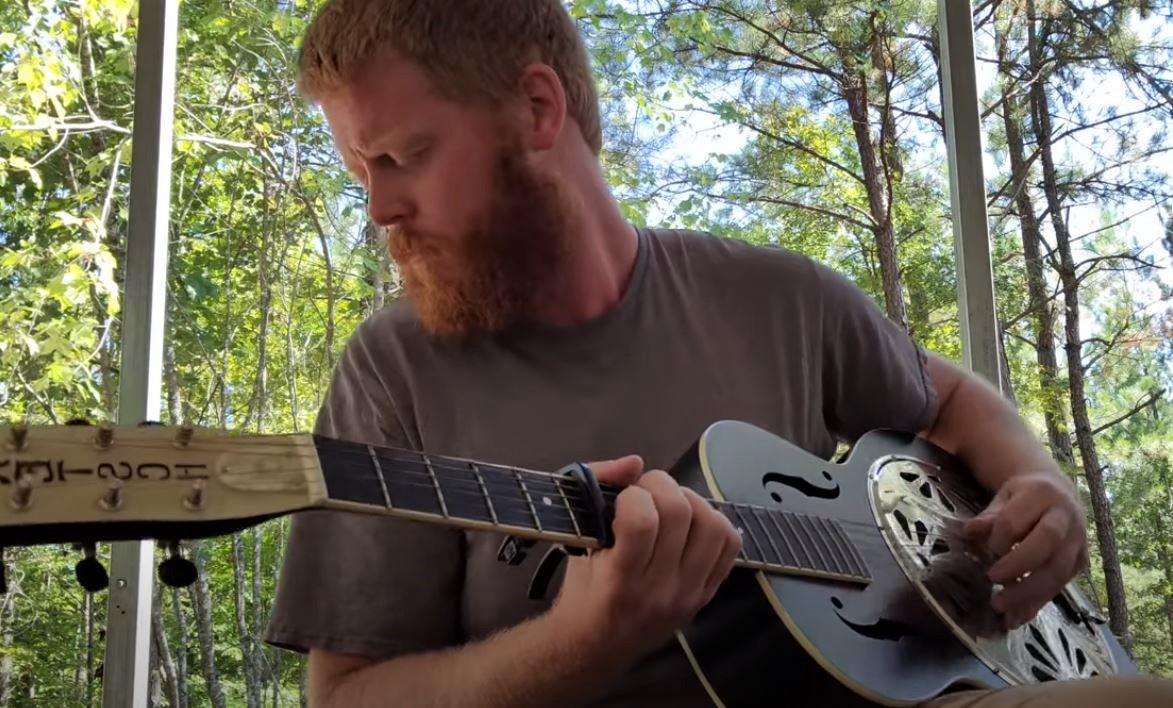
Anthony’s music is the distinction between genuine country and the safe “country pop” fare now manufactured by Nashville’s corporate music machine. It’s noteworthy that American country and bluegrass singer/composer Larry Cordel wrote a song in 1999 titled Murder on Music Row. It describes how the Nashville, Tennessee music industry committed “an awful murder down on Music Row” by slaying traditional country music.
“Music Row” is the epicenter of the country music biz in Nashville. A line from the song goes: “The steel guitar no longer cries and you can’t hear fiddles play, but drums and rock and roll guitars are mixed up in your face.”
With one fell swoop, Oliver Anthony breathed new life into traditional American country music. However, if I had Anthony’s ear I would advise him to remain independent when it comes to record deals. Stay away from the Nashville fat cats and remember Murder on Music Row. Rely on the grassroots working men and women who love and support your talents, that is where true rewards are to be found.
Anthony may have scored big with Rich Men North Of Richmond, but one should pay attention to his body of work. Listen to his song, Rich Man’s Gold. The lyrics are spiritual in a sense as they denounce materialism, but the words also celebrate the simple wonders that make a good life. The song is the very essence of classic country music:
“You won’t born to just pay bills and die
You won’t born to just pay bills and die
All you need is a dog, a shack with a creek in the back,
And a good woman to hold
You don’t need that Rich Man’s Gold.”
For the moment my favorite song by Anthony is titled Hell on Earth, a rumination on the meaning of death. At first listen it reminded me of You gotta move, another contemplation of death by Black country blues singer Mississippi Fred McDowell (1904-1972). McDowell performed solo and played a slide guitar. He recorded You gotta move in 1964, and in 1971 the Rolling Stones published their version of his song on their Sticky Fingers album.
Anthony’s Hell on Earth has the sound of a mid-20th century country song, but it is pure bred-in-the-bone 21st century angst. Semireligious and solemn, the song nailed me with this:
“I found most people die and go to hell
before they ever hit the ground
cause they wake up early and they still run late
curse every man woman and child
on the interstate.”
On cue, the liberal gatekeepers of art and culture were ready to rebuke Oliver Anthony. On Aug. 11, 2023 Rolling Stone magazine published a hit piece titled Right-Wing Influencers Just Found Their Favorite New Country Song. Were they referring to this right-wing influencer, or perhaps these two conservative conspiracy theorists?
Rolling Stone was once a dissident counter-culture magazine. It’s premiere 1967 issue featured articles on the just concluded Monterey Pop Festival, the psychedelic Jefferson Airplane rock band, and a cover photo of John Lennon in the antiwar film How I Won the War. Today, sans alternative culture, Rolling Stone is nothing but hack journalism. They attempted to slander Anthony as a bête noire to be shunned. Nonetheless, a bird can’t fly with only a left wing.
The reality of Rolling Stone’s “credibility” follows. On Aug. 1, 2013, they published a glamour photo cover featuring the Boston Marathon bomber Dzhokhar Tsarnaev; it made the terrorist look like a rock star. On April 15, 2013 Dzhokhar and brother Tamerlan planted bombs filled with nails at the race finish line. The explosions killed 3 and wounded 100s. Dzhokhar said the bombing was “retribution for US military action in Afghanistan and Iraq.” He said his victims were “collateral damage.” Tamerlan was killed in a police dragnet after the blasts, and Dzhokhar still sits on death row awaiting execution.
Billboard, the mouthpiece of the corporate music industry, was not quite as biased. They characterized the song as “raging against greed and injustice,” yet still insisted the composition is “being embraced and promoted by right-wing pundits.” When exactly did liberals and leftists conclude their struggle against “greed and injustice”? It was likely around the time when they turned their backs on the 1st Amendment, and discontinued their opposition to war and corporate power.
Remember, Senator Bernie Sanders said at the 2016 Democratic presidential debate, that white people “don’t know what it’s like to be poor.” But when Oliver Anthony sings about “these rich men north of Richmond” wanting “total control,” liberals fly off the handle.
Remarkably, on August 13, 2023, Oliver Anthony played an hourlong open-air free concert at the Morris Farm Market in Currituck, North Carolina. Upwards of a 1000 people gathered in 100 degree heat to hear Anthony sing. He opened the concert by reading from the Bible’s Psalm 37: “The wicked plot against the righteous, and gnash their teeth at them; but the Lord laughs at the wicked, for he knows their day is coming.”
When Anthony began to play his anthemic song Rich Men North Of Richmond, something remarkable occurred. The huge throng that had gathered in the hot sun to support Anthony, began to sing along… they knew every single word. I started this article by recalling the singalongs folk singer Pete Seeger once conducted with his audiences, to be honest I haven’t seen that kind of audience participation in decades. Anthony didn’t need to encourage his followers, they couldn’t wait to sing.
I describe the type of paintings and drawings I create as “social realism.” This genre of American art was dominant from the 1930s to the early 1950s, when it was superseded and buried by abstract art. Social realist artists observed real American life with all of its ups and downs, and based their realistic artworks on the things they witnessed. The great depression with its breadlines, the dustbowl years that impoverished farmers, workers’ strikes… all were recorded by the social realist artists.
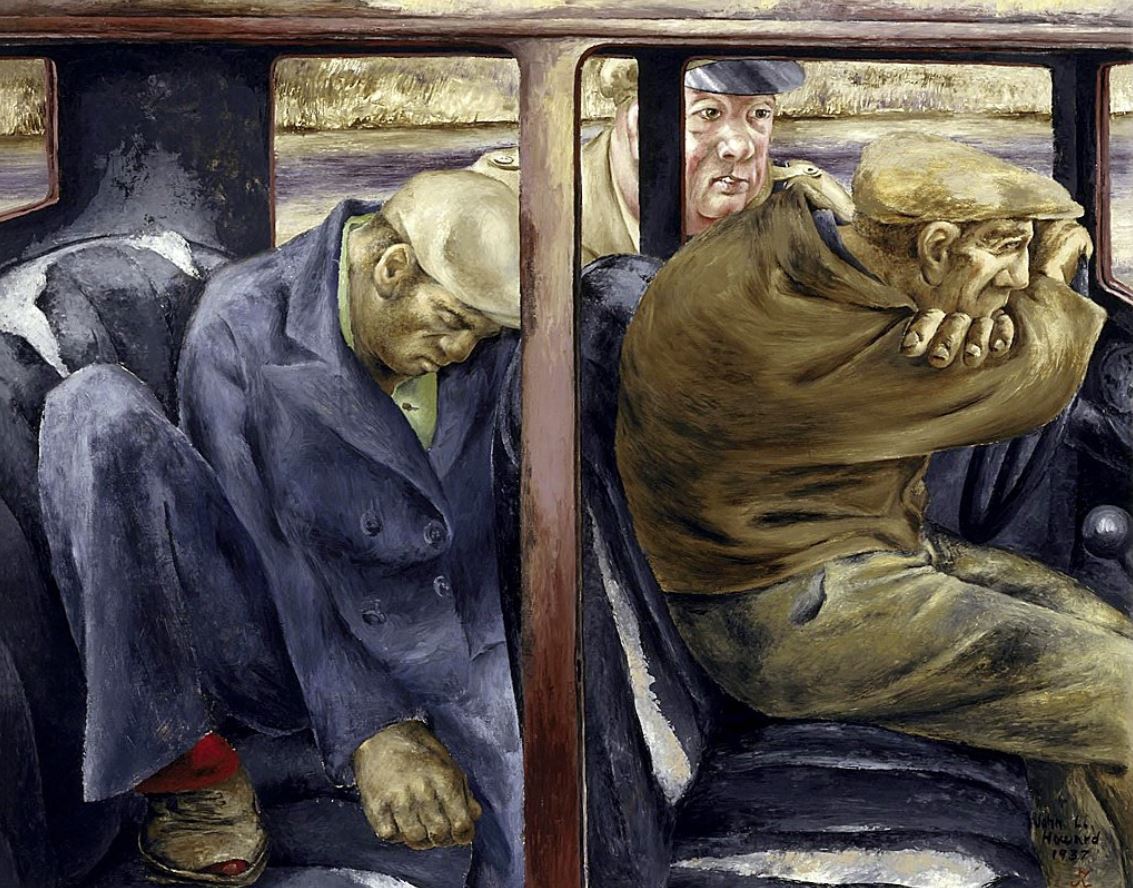
So too, the social realists recorded with paint and pencil the glories of America. Everyday people with their works and aspirations were depicted, as well as the nation’s natural and urban landscapes. Social realism in art is desperately needed once again. I hope to see it revitalized and updated for the 21st century. The genre has historically been connected to the visual arts, but a certain country music performer named Anthony just might qualify.
Here are the lyrics to Oliver Anthony’s Rich Men North Of Richmond. You just might need them for an upcoming singalong.
“I’ve been selling my soul
Working all day
Overtime hours
For bullshit pay
So I can sit out here and waste my life away
Drag back home and drown my troubles awayIt’s a damn shame
What the world’s gotten to
For people like me and people like you
Wish I could just wake up and it not be true
But it is, oh, it is
Living in the new world
With an old soulThese rich men north of Richmond
Lord knows they all just want to have total control
Wanna know what you think
Wanna know what you do
And they don’t think you know, but I know that you do
Cause your dollar ain’t shit, and it’s taxed to no end
‘Cause of rich men north of RichmondI wish politicians would look out for miners
And not just minors on an island somewhere
Lord, we got folks in the street, ain’t got nothing to eat
And the obese milking welfare
Well God, if you’re 5 foot 3 and you’re 300 pounds
Taxes ought not to pay for your bags of fudge rounds
Young men are putting themselves six feet in the ground
‘Cause all this damn country does is keep on kicking them downLord, it’s a damn shame
What the world’s gotten to
For people like me and people like you
Wish I could just wake up and it not be true
But it is, oh, it is
Living in the new world
With an old soulThese rich men north of Richmond
Lord knows they all just want to have total control
Wanna know what you think
Wanna know what you do
And they don’t think you know, but I know that you do
‘Cause your dollar ain’t shit, and it’s taxed to no end
‘Cause of rich men north of RichmondI’ve been selling my soul
Working all day
Overtime hours
For bullshit pay.”
_______________________________
UPDATE: On Aug. 17, 2023, Oliver Anthony published a statement on his official Oliver Anthony Music account on Facebook. An excerpt reads:
“People in the music industry give me blank stares when I brush off 8 million dollar offers. I don’t want 6 tour buses, 15 tractor trailers and a jet. I don’t want to play stadium shows, I don’t want to be in the spotlight. I wrote the music I wrote because I was suffering with mental health and depression. These songs have connected with millions of people on such a deep level because they’re being sung by someone feeling the words in the very moment they were being sung. No editing, no agent, no bullshit. Just some idiot and his guitar. The style of music that we should have never gotten away from in the first place.”

